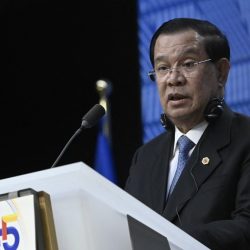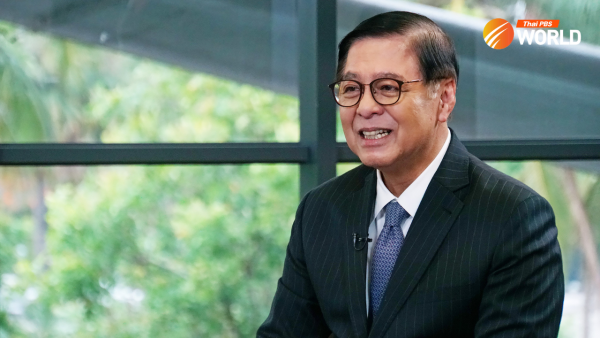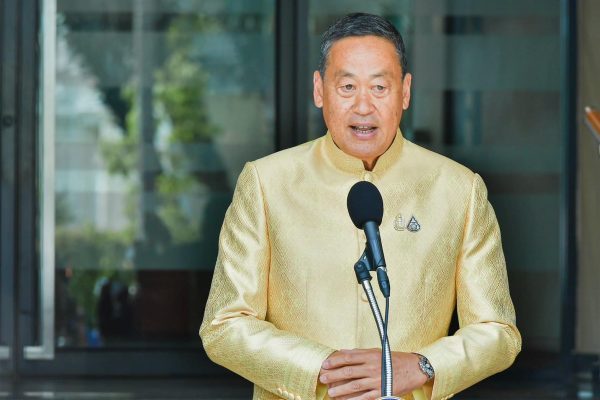2022 review: Chadchart Sittipunt bridges political divide to win Bangkok governorship

Chadchart Sittipunt made history on May 22 when he won Bangkok’s governor election with a record 1.38 million votes or 52 percent of all ballots cast. His two closest rivals received less than 10 percent each.
The 1,386,769 votes won by Chadchart was the highest in a Bangkok gubernatorial election. It also saw him tipped as a possible future prime minister of Thailand.
He became the fourth candidate to gain more than 1 million votes since the first Bangkok governor election in 1975. MR Sukhumbhand Paribatra from the Democrat Party set the previous record with 1,256,349 votes in the March 2013 election.
The sheer size of his support showed Chadchart’s votes came from groups spanning the political divide, and not just from the core opposition Pheu Thai Party that he had been associated with.
Chadchart was among Pheu Thai’s three prime ministerial candidates for the 2019 general election but opted to run as an independent in the governor’s poll. That proved to be a smart decision at a time when many voters are fed up with divisive party politics.
The runner-up, Suchatvee Suwansawat from the coalition Democrat Party, won 9.6 percent of the votes, while third-placed Wiroj Lakkhanaadisorn from the opposition Move Forward Party garnered 9.5 percent.
Analysts said Chadchart would have attracted far less support had he contested as a Pheu Thai candidate, as the party and its patriarch Thaksin Shinawatra are disliked by many Bangkok voters.
Support from across political spectrum
This was the first Bangkok governor poll in nine years after local elections were suspended following the 2014 military coup. More than 2.67 million voters turned out to cast their ballots, accounting for 61.2 percent of the capital’s 4.36 million eligible voters.
Political observers said that after the long hiatus, frustrated Bangkokians were keen to choose their representative at the ballot box. They noted that a massive number of voters from across the political spectrum threw their support behind Chadchart.
But in the two Bangkok elections held on the same day, there was a big gap between the volume of votes for gubernatorial candidates of political parties and those for their city councillor candidates.
For instance, Move Forward’s city council candidates received a total of 482,832 votes, but its governor hopeful Wiroj garnered a meager 253,851. The Democrat Party’s council candidates won 348,853 votes, while its gubernatorial candidate Suchatvee attracted only 254,647.
‘Reconciliatory’ stance is his strength
Analysts seeking reasons why so many Bangkokians voted for Chadchart pointed to his personality, qualifications, wide support base, and strong campaign team.
Yuthaporn Issarachai, a political scientist from Sukhothai Thammathirat Open University, is convinced Chadchart’s support base spans generations X to Z – or first-time voters to the middle-aged – and accounted for more than half of eligible voters.
The analyst noted that Chadchart’s campaign platform steered clear of radical policies, allowing him to attract conservative voters in addition to his liberal support base. He added that Chadchart launched his campaign at least two years before the election, thereby gaining a big momentum advantage over his competitors. The head start contributed to his “super-landslide” victory, Yuthaporn said.
Panas Thassaneeyanont, former dean of Thammasat University’s Faculty of Law, was convinced that Chadchart’s policy of political reconciliation was a key factor in his big win. “This stance won many Bangkokians’ hearts. It gave them hope that at least there is someone who is truly clean and capable of tackling the city’s problems,” he said.
Double-edged sword
However, his impressive election performance has become a double-edged sword for the Bangkok governor, sparking high expectations from city residents.
A recent opinion poll indicated the Bangkok governor is still enjoying a honeymoon period after six months in office.
In the National Institute of Development Administration (NIDA) survey of 1,500 Bangkokians, 42 percent said they were “satisfied” with his performance and 39 percent said they were “highly satisfied”.
Respondents who said they were not satisfied said Chadchart had failed to fix long-standing Bangkok problems such as traffic jams and seasonal flooding.
However, there are signs the new governor’s honeymoon period may be coming to an end. Critics point out that six months into his four-year term, the governor is yet to honor his campaign promise to tackle issues soon after being elected, including Skytrain fares, flooding, and toxic smog. Detractors also accuse him of being too active on social media.
By Thai PBS World’s political Desk






